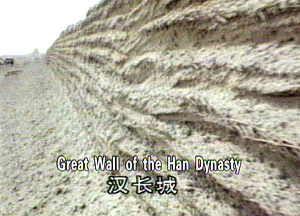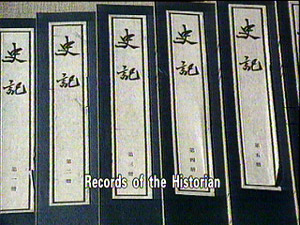 |
|
| Emperor Wudi of the Han Dynasty
|
|
|
 The empire of Qin set the pattern of a unified multi-national country, but it fell apart very soon because it had wantonly engaged in military ventures and launched an immense construction project. The empire of Qin set the pattern of a unified multi-national country, but it fell apart very soon because it had wantonly engaged in military ventures and launched an immense construction project.
After he conquered the country, Liu Bang who founded the Han Dynasty drew lessons from the downfall of the Qin Dynasty and adjusted the policies. Through the reigns of Emperor Wendi and Emperor Jingdi, the national strength of the empire of Han greatly increased and the social life was enlivened.
After he came to the throne, Emperor Wudi took advice from Jia Yi and Dong Zhongshu. He realized that the lack of an active cultural policy was one of the root causes of the downfall of the Qin Dynasty. Going with the tide of historical development, he started a cultural revival with far-reaching significance.
The First Emperor of the Qin Dynasty had books burned and Confucian scholars buried alive, causing a cultural desert for dozens of years. Emperor Wudi of the Han Dynasty ordered that those books that had not been burned be collected from the people and sent to Chang'an, the national capital. Ban Gu wrote in the History of the Han Dynasty: "After the Han Dynasty was founded, the wrong policies of the Qin Dynasty were abolished. A great many essays and books were collected. People were encouraged to present books."
"After the Han Dynasty was founded, the wrong policies of the Qin Dynasty were abolished. A great many essays and books were collected. People were encouraged to present books."-- from The History of the Han Dynasty
Emperor Wudi set up the post of Erudites of Five Classics and the National University under the imperial court. Confucian scholars began to participate in court administration. A national educational system was established to train civil officials. This had a great impact on the formation of the system of civil officials in China. Confucianism became the mainstream ideology for the successive dynasties.
Emperor Wudi ordered the restoration of many ancient rites. He advocated the development of literature, set up the Music Bureau and made enlightenment by ritual and musical education one of the government functions. All this encouraged the practice of civilized behaviour in society. The book Records of the Historian by Sima Qian was born in that period of cultural revival.
The country had been unified when Emperor Wudi of Han came to the throne, but the threats from the surrounding countries remained and splittists were still active in the country.
The Huns on the Mongolia Plateau became more and more powerful, posing a threat to the Central Plains. Emperor Wudi of Han appointed Wei Qing and Huo Qubing, two prominent young generals, to command three large-scale expeditions.
 The three expeditions forced the Huns to move to the far north, maintaining stability in the northern border area. The three expeditions forced the Huns to move to the far north, maintaining stability in the northern border area.
Huo Qubing died of illness at the age of 29. Emperor Wudi of Han had this hero buried at the side of his own tomb. Many big stone carvings were laid in front of the young general's tomb to mark his military exploits.
While striving for peace and tranquillity in the north, Emperor Wudi of Han sent Zhang Qian to the Western Regions as a diplomatic envoy on two occasions. Thanks to the efforts he made for years, Emperor Wudi of Han expanded the territory of his empire to the area east and south of the Balkhash Lake. The well-known Silk Road linking China with the West was opened up.
Emperor Wudi of Han conquered a few small kingdoms that created splits in the south. Hainan Island and the South China Sea Islands were included in China's territory.
hose measures delimited the territory of the empire of Han. After he removed the chaos caused by war, Emperor Wudi established relations by marriage with leaders of minority nationalities and adopted other policies to strengthen unity among people of various nationalities.
The story of Zhaojun going out of the pass is a vivid description of friendship among the people of different nationalities in those days.
With Emperor Wudi's cultural and military achievements and his great talent and bold vision, China had never been as strong as it was under his reign. It was a great country standing side by side with the Roman Empire.
As the leader of this world power, Emperor Wudi of Han was crowned with eternal glory as a great statesman.
|
|
|
|
|
|
|
 |









